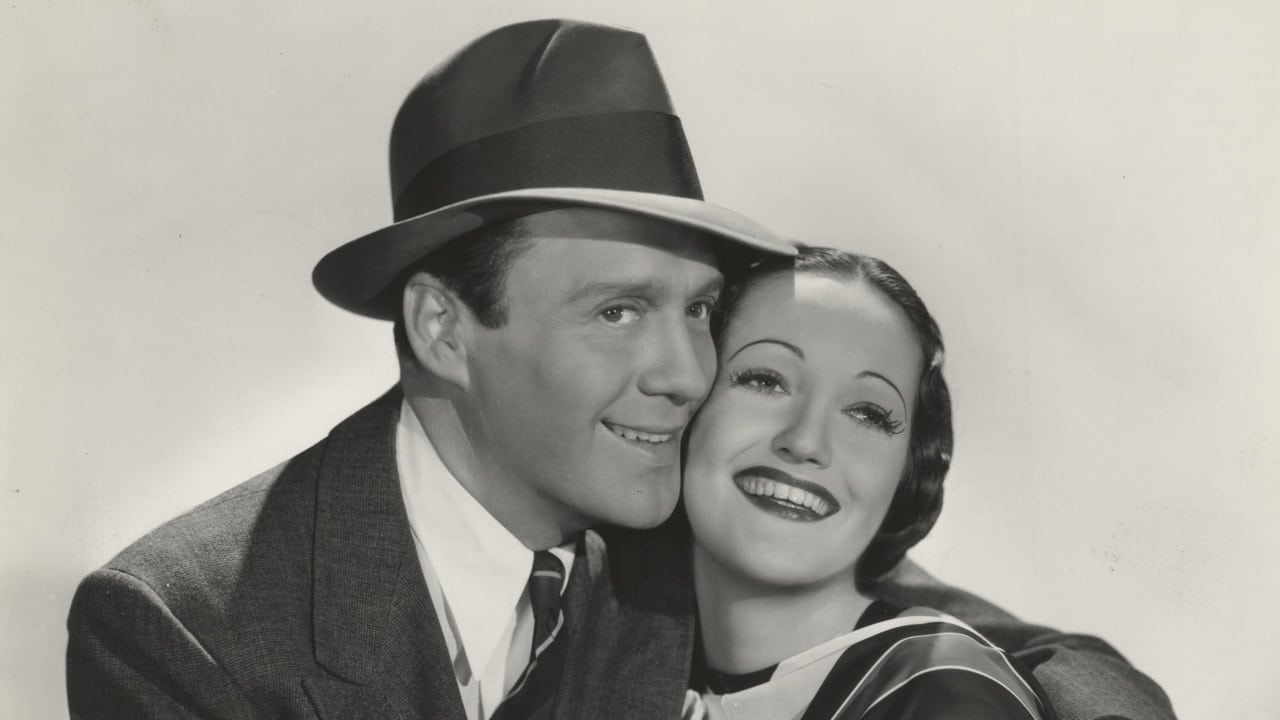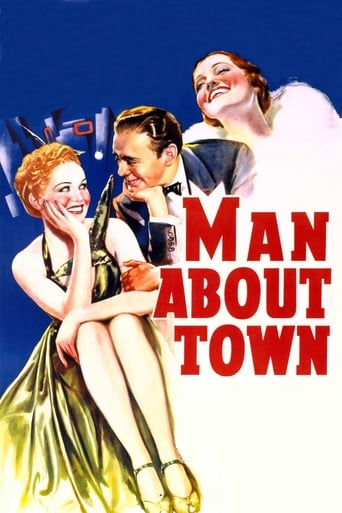

An old vaudeville gag has a wife hiding her lover in her closet as her husband comes home unexpectedly, and when he goes to the closet, the lover claims he's waiting for a streetcar as one arrives in the nick of time. This is nothing more than an almost plotless musical comedy about an American theatrical producer (Jack Benny) in London who accepts the invitation of a neglected wife (Binnie Barnes) to come to her country estate for the weekend to make her husband (Edward Arnold) jealous. He's already upset because the musical comedy star he's in love with (Dorothy Lamour) loves somebody else (Phil Harris). Then there's "Rochester", aka Eddie Anderson, Benny's wise-cracking but loyal valet who gives Mr. Benny as good as it takes. Toss in Betty Grable in a pointless role as a chorus girl and you've got the ingredients for a comical pie where sadly the fruit has been left out.Some lavish production numbers are interspersed, but other than the luxurious art decco look, they are not really all that memorable. The best scenes of course involve Benny and Rochester's interactions, especially a huge meal where the dateless Benny refuses to allow Rochester to partake of it until he is dumped by Lamour and turned down by Grable and her chorus girl friends who would rather spend an evening with their Aunt Tilly than with Jack. The rapporteur between Benny and Robinson might often seem subservient from Rochester's point of view, but it becomes very clear that Benny would be absolutely lost without him and that Rochester is greatly aware of that. Isabel Jeans ("Gigi") and Monty Woolley ("The Man Who Came to Dinner") have inconsequential supporting parts as members of Barnes' and Arnold's social set, with Jeans very comical in her over the top French accent as the instigator of Barnes' deception. Barnes is urbane and sophisticated, and Arnold his usually gregarious self, very funny in a scene where Barnes brags about her lunch with Benny as he basically responds, "That's nice, dear". Of course, when all becomes clear to him, it's a different story, and Arnold spends much of the rest of the film trying to shoot Benny for messing with his wife. Unlike other comics of the time, it appears to me that Benny simply tried to repeat the success of what he was doing on radio, not really thinking that audiences at the movies wanted something more solid than gags and a couple of decent songs. It isn't bad, but I wouldn't call Benny a threat at Paramount to anything his good friend Bob Hope had been doing already.
... View MoreCopyright 7 July 1939 by Paramount Pictures, Inc. New York opening at the Paramount: 28 June 1939. U.S. release: 7 July 1939. Australian release: 30 September 1939. Sydney opening at the Prince Edward (as the top half of a double bill with Robert Florey's "B", The Magnificent Fraud) where the movie failed so miserably it was replaced in the middle of its third week by Death of a Champion. 9 reels. 85 minutes.SYNOPSIS: An American producer is in love with the leading lady of the show he is staging in London. Unfortunately, his love is not reciprocated. He decides to make her jealous by romancing other women.COMMENT: Lavishly produced, beautifully mounted musical displaying the superlative ability of comedians Jack Benny (who is in every scene of the movie but one) and Rochester to overcome the restraints of an indifferent, old-hat plot cooked up by Morrie Ryskind (a gag-writer for the Marx Brothers). Benny and Anderson manage to keep the fur flying magnificently right through a series of long, long openings until the first musical number finally comes along. It's the most tuneful in the movie, "That Sentimental Sandwich", and nicely rendered by Lamour with a bit of skilful assistance from Harris and Rochester. Those deservedly popular crowd-pleasers Monty Woolley, Edward Arnold and Binnie Barnes (and E.E. Clive) then come on to bolster the comic endeavors of our heroes until the next stand-out interlude, "Fidgety Joe", somewhat tepidly sung by Betty Grable (also with a bit of strong assistance from the omnipresent Phil Harris) and most vibrantly danced by the delightfully gifted Rochester.The Merriel Abbott Dancers are wisely saved for a spectacular musical climax where they disport themselves in colorful costumes through the melodic "Strange Enchantment" (sung by Lamour), whilst Rochester shuffles up a storm in another standing-ovation solo spot. The pin-wheeling Merriel Abbotts then return for "Bluebirds in the Moonlight", whilst Benny encores with the Pina acrobats in a tangled routine of mishaps which Danny Kaye later reprised in Knock on Wood.Although just about everyone hated it, I found this entry a delightful show, featuring great stars and some great support players including Cecil Kellaway and Charles Coleman, directed with panache by Mark Sandrich and lustrously photographed by that master of black-and-white texture, Ted Tetzlaff. In my opinion, the Paramount gloss was never finer. And the Edith Head costumes are wonderfully slinky. Lamour never looked more glamorous.
... View MoreA Jack Benny vehicle, this film is very watchable even after all these years. Jack Benny, though not as funny as he's supposed to be here, does his job well. One feels like putting an arm over his shoulders watching him being so kind with no success to win Dorothy Lamour.Now, Dorothy Lamour...how can someone NOT like her? She's beautiful, exotic looking but at the same time very down-to-earth. She also possesses a beautiful contralto singing voice and has a great acting talent. Her part was supposed to be Betty Grable's at the time, but well, it went to her. So be it...she's great.The beautiful Betty Grable, unfortunately, is not seen very much here. She has a short song, though, but so short you don't even have time to realize she's on the screen displaying her shapely legs and sparkling personality! A SHAME! Watch for Eddie Anderson! He's the real star in this film and immediately steals the show completely! He's funny, totally into his character and so likable. And he does 2 solo dancing numbers.As for the plot, well, it is messy. It seems the producer wanted to put as many actors as he could in one same movie and had many parts written on the corner of a table at the last minute to put them in the movie. The result is not, therefore, always effective. But, even with this fault, the movie stays very watchable and sports a classy looks.See it.
... View MoreThis is a pretty weak effort from Benny and the team. Jack and Rochester try but the material is so unfunny that they don't get very far. Rochester's two dance numbers are the highlights - and Benny's attempt at being a member of an acrobatic troupe is very funny. The rest is pretty dull with some bad casting (Edward Arnold as an English Lord?) and really bad musical numbers. Benny's show would never have made it to Hoboken, let alone London - the songs are just awful. No wonder there are only about twenty in the audience - I guess they were saving on extras. Dorothy Lamour looks bored, but Betty Grable provides a bit of life in a small but memorable role. Also good is E.E. Clive as a butler. And what a fizzer of an ending - it doesn't even make sense.
... View More